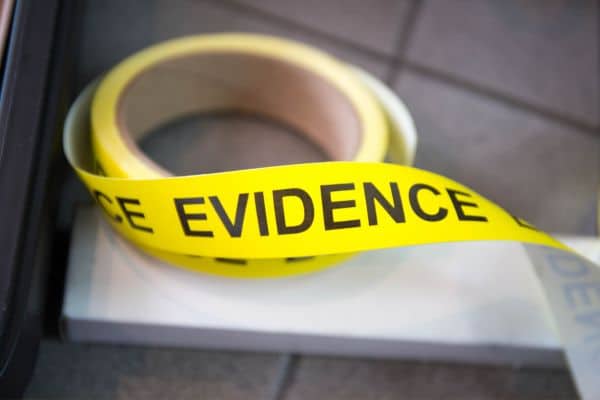How confident are you that you could produce seven years of financial records within 24 hours, if asked? If it’s just your accounts, you probably can because none of us want to get on the wrong side of HMRC. But what about the supporting financial records? Most business owners flounder and many are unaware of the value of good record keeping. Every day, business owners will delete or throw away key evidence of the performance, and therefore value, of their business. It’s not just a question of being organised and keeping everything in order. You need to understand what to keep and when to hit delete.
In this blog we’ll share some of the key documents buyers request during the due diligence phase of a business sale, some of which you might not be aware you need to retain. We’ll also cover some useful tips on data storage, security and sharing of information with interested parties.
Poor record keeping may impact business value
Due diligence is an essential, yet time-consuming process in the sale of a business. Well-organised business records create a good first impression and a willingness to share information builds trust with potential buyers.
Transparency and openness around key business documentation helps to back up any claims you’ve made as a seller. For example, you may promote past profitability and business growth in your sale particulars as a way to generated interested buyers. Anyone then scrutinising your claims needs to feel confident you can back them up with evidence. This is the time you need to demonstrate those trends and explain anomalies through your supporting records, e.g. sales rose by 20% in 2023 (as evidenced in the financial accounts) as a result of XYZ marketing campaign we ran for a period of six weeks at a cost of ££ (demonstration of why sales increased).
Poor record keeping can seriously impact the actual value of your business. Missing, incomplete or inconsistent records create doubt in the mind of a buyer. It also makes data comparison and analysis very difficult. Failure to backup data correctly, consistently and securely may also impact a business valuation. Make no mistake, buyers will use any record-keeping failings to justify a reduced offer. Don’t leave anything to chance.
Make your business an attractive acquisition target
As a general rule, buyers want to see a minimum of three complete years of business accounts. While three years is the norm, it’s worth factoring in the impact of the pandemic. If your business suffered financially during this time, you should be prepared to provide additional information to evidence its impact and business recovery. A buyer may request to see records from before the pandemic to give them a flavour of what trading looked like previously.
Evidence of normal trade patterns, key metrics on business transactions include:
- Client acquisitions rate
- Average customer order value
- Frequency of purchase
- Supplier records
In certain sectors, such as retailers and hospitality where trade is affected by the seasons, normal trade patterns may look very different.
Legal documents you may be asked to provide
When selling your business, legally you need to be able to provide copies of specific records relating to finance, operations and people. These include:
- 7 years of HMRC records – under UK law businesses have to keep HMRC records for a period of six years plus the current year. This includes information relating to corporation tax, VAT, payroll and wage records.
- Financial records – guidance varies depending on if you are a privately owned or publicly listed company. Private companies must keep three years of accounts from creation date and public companies six years.
- Employee records – these must be retained for six months following termination of employment. Copies of past people policies are also useful to retain as ex-employees have the right to raise a grievance up to six months after leaving the company.
- Insurance certification – including copies of old certification for security if back-dated claims need to be made.
- Records of legal disputes – relating to both old and outstanding cases.
- Shareholder certificates – involving the sale and buy-back of company shares.
- Trading licenses and permits – showing you have valid and correct permissions to operate.
- Intellectual property – including evidence of any patents, copyrights, licenses and trademarks linked to your company.
- Employee and third party contracts – employee contracts must be retained for up to six years after employment ends and third party contracts follow similar rules.
This is by no means a comprehensive list. If you’re unsure what records you should be keeping and for how long, the Information Commissioner’s Office (ICO) is a good place to seek help. For further guidance on retaining key evidence to protect the value of your business, book a free discovery call with us.
The value of maintaining digital records
Keeping digital records makes data more accessible and analysis more efficient. Sharing documentation online through a secure data room helps to speed up the due diligence process and allows the potential buyer to manipulate and analyse the data to suit their needs. When preparing digital financial records for viewing, think about how you can make it even easier for the buyer to get the information they require. If you’ve had a conversation with your buyer about gross margin per customer, it will help them to have those figures included in the data you prepare. Making life as easy as possible for your acquirer helps to remove any objections they might otherwise raise.
Throughout due diligence, it’s usual for a solicitor to open up a secure data room where all parties can upload and access documentation relating to the sale. If your business holds any form of physical records, this may present an issue. Consider what action you need to take now to transfer physical records to digital format. Scanning documents is simple yet resource intensive. Are there software or services available that could do this more efficiently for you?
Data security considerations
Under UK GDPR regulation, businesses may only keep certain data for as long as it is useful. It’s essential that every business has a policy on data retention and removal to ensure obsolete data is deleted, however it’s just as important to ensure no valuable documentation is lost.
Purchasing a company is a legal transaction. Company data will be transferred as part of the sale. If you know that physical and/or digital data storage could be improved, act now to minimise the risk to future business value. Data must be stored within ICO and GDPR guidelines.
For more on this subject, take a look at 5 records you must provide when selling an IT business.




